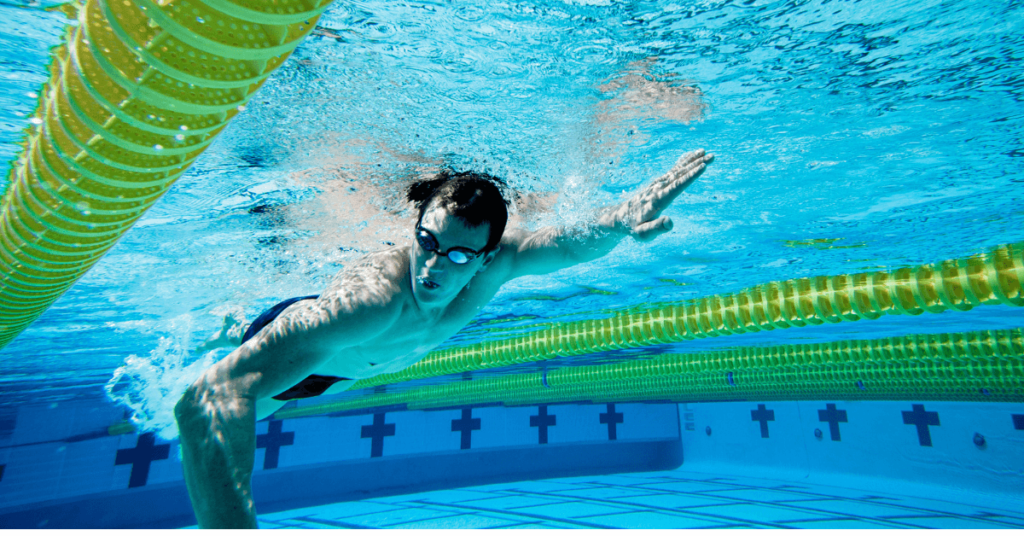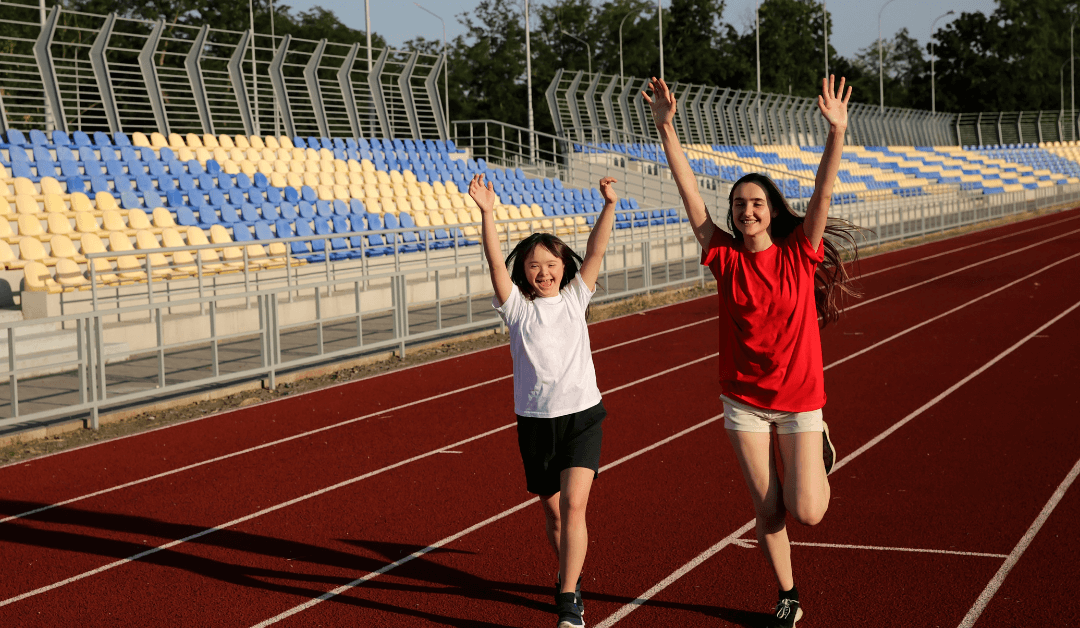Does your child with autism enjoy sports or a specific fitness activity? Or do they want to participate in a fun physical activity and be in a supportive environment with others who accept them as they are? Then Special Olympics may be your answer. Check out these seven reasons to consider enrolling your child with autism with a Special Olympics team.
What is Special Olympics?
Special Olympics is an organization that offers a program of more than 30 individual and team sports for those who have intellectual disabilities. According to their website at specialolympics.org, the organization’s mission is to “provide year-round sports training and athletic competition in a variety of Olympic-type sports for children and adults with intellectual disabilities, giving them continuing opportunities to develop physical fitness, demonstrate courage, experience joy and participate in a sharing of gifts, skills and friendship with their families, other Special Olympics athletes and the community.”
Special Olympics also partners with schools across the United States for a program they call Unified Sports. These are elementary, middle/junior high and high schools along with universities and colleges. The goal is to include all athletes of abilities and willingness to participate. They have Unified sports teams that enable young people with disabilities to be included in the school’s athletic program.
The organization was founded in the 1960s by Eunice Kennedy Shriver, inspired by her sister Rosemary who had an intellectual disability and loved to participate in sports. However, she had limited opportunities because of her intellectual disability. Shriver invited others with intellectual disabilities to “Camp Shriver” in her backyard in 1962 to help them explore sports and physical activities. That eventually evolved into Special Olympics.

Who is eligible?
Anyone with an intellectual disability (such as autism) is eligible to participate in Special Olympics. They even have a young athlete program for children ages 2 to 7 to participate.
You can find out more about specific eligibility criteria from your local program. To find a local program, go to the Special Olympics program web page.
Why should you consider Special Olympics for your child with autism?
Our son J has run track for our local Special Olympics team since he was 11 years old. (Unfortunately, he had to miss last year’s season because it was cancelled due to the COVID-19 pandemic, but he is looking forward to starting track practice soon for this year.) He absolutely loves it! He runs the 100-yard dash and competes in the standing long jump and shotput (softball throw when he was younger). In fact, I talked to the athletic director at J’s middle school to determine if it would be good for him to run track for the school team. However, as we talked about why he loved it so much, it was clear that it was participating on the Special Olympics team that really brought joy to him. We decided it was best for him to continue track with the Special Olympics team rather than join the school’s team.
Why should you consider Special Olympics for your child with autism? Based on our experience, I offer seven reasons.

1. Sports participation without the pressure
I remember playing sports when I was young in our Little League, both softball and basketball. My brother played baseball, basketball and football. As a young athlete, I remember feeling so much pressure both from the coaches and the parents of team members to win our games. I’ve heard from other parents that this has gotten worse for our children’s generation.
I completely understand teaching competitiveness to our kids and encouraging them to do their best. We do that as well. However, when children feel too much pressure to win and not as much focus on learning how to play the game, having discipline to stick with practices, improving their abilities and. let’s face it, mostly having fun and finding joy in playing sports, then it becomes a more negative experience for them.
With our Special Olympics team, our son J doesn’t experience any of that pressure. They encourage him to practice and do his best. The coaches and parents provide a nurturing environment and good team spirit. They want all the athletes to have fun and learn how to support one another. I love the positive atmosphere that the team and the whole Special Olympics experience has given J.
2. Acceptance of your child for who they are
One of the things I like most about our Special Olympics team is the full acceptance by the coaches and teammates for who J is. At school, he masks and has to cope to fit in better with the neurotypical world. At his Special Olympics practices, track meets and other activities, he can be fully himself and not have to feel like he needs to change himself. He too accepts his teammates for who they are. He has made friends with the other athletes and truly enjoys going to practices. J also likes to help those on his team who need it, and he cheers his teammates on as they are practicing and competing.

3. Supportive parents and coaches
I mentioned it above, but I want to say it again. I really appreciate the support the Special Olympics coaches and parents/caregivers of his teammates have give to J. It does not matter the athlete’s ability; they all receive the same encouragement and support. As a parent of an autistic child, I know this is worth its weight in gold.
4. Opportunities to make friends
Most of us have watched our children with autism struggle to make and keep friends. I think because of the supportive environment and acceptance on the Special Olympics teams, it has been easier for J to make friends amongst his teammates. It’s a big reason why he enjoys participating on the team.
5. Sense of accomplishment
J participates in our area track meets but hasn’t yet been part of the state games for our team. Still, when he brings home his medals and ribbons that he earned, he is so excited. Even just running the race and competing gives him a sense of accomplishment. For our kids on the spectrum, that sense of accomplishment can be big.
6. Great organization and mission
I greatly appreciate the Special Olympics as an organization and its mission. Our son J has felt included by being able to do something he enjoys – running – in an environment that accepts him for who he is and encourages him to build his capabilities.
7. Involvement in a nurturing community
When your family becomes involved in Special Olympics, you and your child are part of a nurturing community. I am grateful for the supportive, positive, inclusive environment the organization provides through its leaders and coaches.
If you want to find out more about Special Olympics, I encourage you to contact the local program in your city, town or county.
Has your child with autism participated in Special Olympics or Unified Sports? If so, how has the program benefited your child? Leave a comment below so that we can support and encourage one another on this journey!








